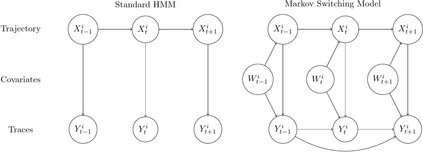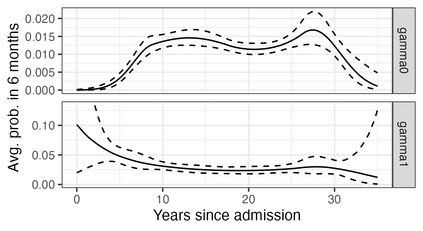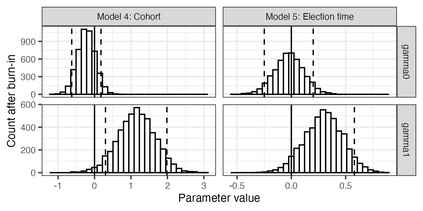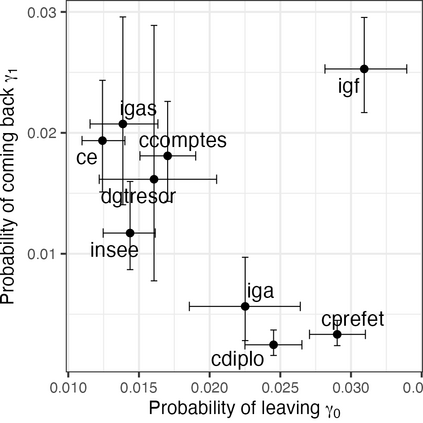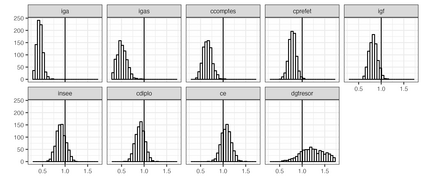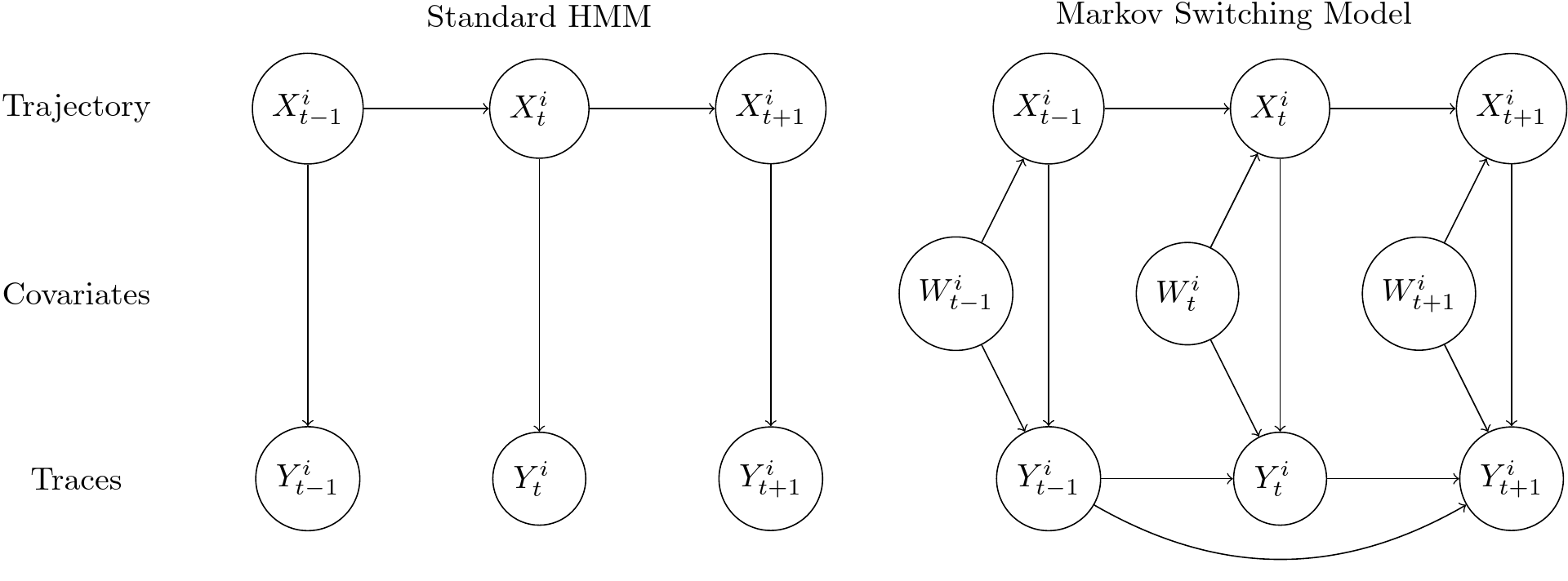Many social scientists study the career trajectories of populations of interest, such as economic and administrative elites. However, data to document such processes are rarely completely available, which motivates the adoption of inference tools that can account for large numbers of missing values. Taking the example of public-private paths of elite civil servants in France, we introduce binary Markov switching models to perform Bayesian data augmentation. Our procedure relies on two data sources: (1) detailed observations of a small number of individual trajectories, and (2) less informative ``traces'' left by all individuals, which we model for imputation of missing data. An advantage of this model class is that it maintains the properties of hidden Markov models and enables a tailored sampler to target the posterior, while allowing for varying parameters across individuals and time. We provide two applied studies which demonstrate this can be used to properly test substantive hypotheses, and expand the social scientific literature in various ways. We notably show that the rate at which ENA graduates exit the French public sector has not increased since 1990, but that the rate at which they come back has increased.
翻译:暂无翻译

